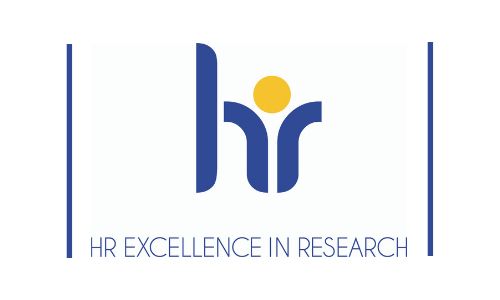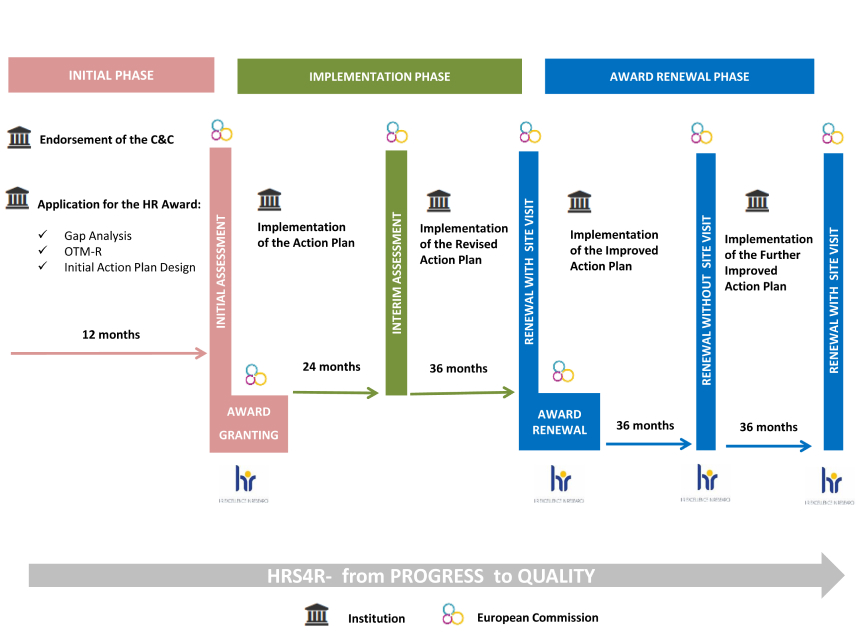The HRS4R strategy («Human Resources Strategy for Researchers») is a tool of the European Commission to support universities, research institutions and organizations that finance research in the application of the European Charter for Researchers. and the Code of Conduct for Hiring Researchers. Its objective is to contribute to the development of an attractive European labor market for researchers.

What are the letter and the code?
The Charter and the Code of Conduct are EC recommendations to the Member States and they are invited to apply them voluntarily:
- European Charter for Researchers: The European Charter for Researchers is a set of general principles and requirements that define the roles, responsibilities and rights of researchers and entrepreneurs and funders.
- Code of Conduct for the Recruitment of Researchers: The Code of Conduct for the Recruitment of Researchers, which underlines the importance of open and transparent recruitment procedures and diverse and experienced selection committees.
The Foundation is committed to improving the conditions of researchers, so in March 2021, we requested adherence to the European Charter for Researchers and the Code of Conduct for Hiring Researchers.
The «HR Excellence in Research (HRS4R)» seal accredits and supports universities and institutions as generators of an attractive European labor market for researchers and recognizes the institution’s commitment to continuous improvement when establishing fair and transparent procedures in the hiring staff, attracting talent and promoting a research career within the European framework.
The main phases of the HRS4R process are as follows:
- Initial phase: approval of the Charter and Code and Notification of Commitment.
- Implementation phase: preparation of a Gap Analysis and an Action Plan for Human Resources Management, which contains improvements to align our human resources strategy with the principles of the European Charter and Code (Charter & Code).
- Initial evaluation by the European Commission through an external Evaluation Committee.
- Midterm evaluation: conducting an internal analysis and external evaluation (2 years after the initial HRS4R recognition).
- Recognition Renewal Phase: takes place 5 years after the initial HRS4R recognition.
- Continuous improvement and quality improvement and evaluation phases (renewal cycle every three years).

Currently, 585 organizations and institutions have this seal, and among them, 136 are Spanish organizations.
At the end of 2023, ISABIAL developed a new analysis of its alignment with the 40 C&C principles to face the HRS4R Interim Assessment. As a result, the Institute prepared the Revised Action Plan, in order to advance in the process and achieve continuous improvement in its human resources policies.

